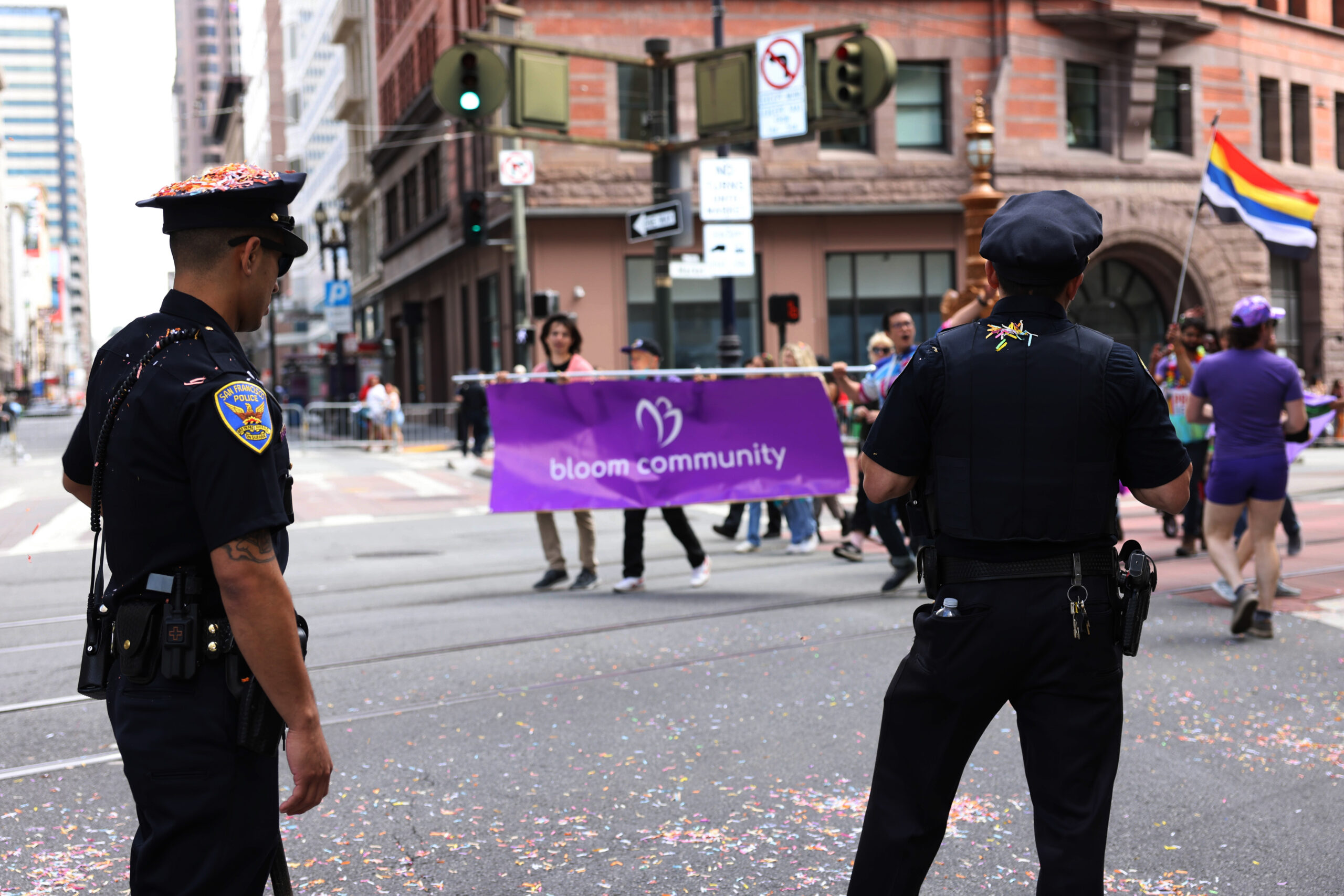Between 2017 and 2022, the San Francisco Police Department spent $88.9 million more on its employees—despite its staff working fewer hours, according to employee pay data from the City Controller’s Office.
The cause? Police say it’s the department’s significant increase in overtime: Over the last five years, the number of overtime hours logged by the department steadily increased, before jumping 54% between 2021 and 2022.
In total, department staff—including both sworn officers and administrative staffers—worked roughly 125,700 fewer hours in 2022 than it did in 2021, which amounts to a decline of 2%. That was largely driven by an 8% decrease in regular hours worked, which police attribute to the sworn officer shortage.
SF’s police department has 335 fewer full-duty police officers than it did in 2017, with a total of 1,537 officers as of January, according to Supervisor Matt Dorsey, a former police communications staffer.
A police staffing analysis indicated that the department needs upward of 2,100 sworn officers to satisfy city demands. As fewer officers are available to patrol streets or respond to incidents, the department says it has been forced to ask staff to work longer hours or pick up extra shifts.
Overtime hours cost the department one-and-a-half times the base pay for a regular shift. If the department keeps losing officers and shrinking its ranks, its increased reliance on overtime drives up pay costs.
Police departments across the country have reported similar staffing shortages, which many say leads to increased police response times and insufficient services, often in underserved neighborhoods.
In San Francisco, concerns about public safety have reached a fever pitch as merchants and city residents report increased property crime, open-air drug dealing, car break-ins and vehicle theft.
These findings come as Mayor London Breed attempts to push her latest budget agenda, which includes a $27.6 million supplemental to fund police overtime. Citing extreme understaffing issues and a higher cost of overtime hours, the budget supplemental is designed to foot the bill for more patrols and prevent a hiring and overtime freeze at the department.
What’s Behind the Increase in Pay?
In addition to the higher cost of overtime pay, police department representatives say consistent cost-of-living adjustments have increased the department’s employee spending. SF police upped pay by 3% in both 2019 and 2020 fiscal years, and officers say pay rates are expected to increase another 6% by July this year.
And because San Francisco’s police department has struggled to recruit and swear in new officers, the department says that it has to pay more for officers who have served for numerous years.
“During that same 2017 to 2022 time period, the cost of living in the San Francisco area increased more than 20% and like all city and private sector employees, our officers have seen modest pay increases to keep up with those costs,” said Tracy McCray, president of the SF Police Officer’s Association. “If the city wants to reduce its overtime costs, it has to hire more officers.”
Some city leaders are skeptical that the police department’s increased spending can be attributed to overtime and retention pay alone, however. Supervisor Hillary Ronen—who is yet undecided on the mayor’s police pay bump plan—said in a text message to The Standard that she is skeptical that the department is using its funds effectively.
“Why are they overspending when over 15,000 calls for services have been diverted from the police to the fire and health departments? If we grant these additional funds, are they going to continue overspending, or do they have a plan to live within their annual budget [of around $800 million]?” Ronen wrote.
Supervisor Dean Preston is one of the budget supplemental’s biggest detractors, calling into question how the police department handled spending in wake of previous years’ police budget increases.
“It is preposterous that a department that got bonuses, raises, and a $50 million budget increase last summer—would come back seven months later for an additional $27.6 million,” Preston said in a statement earlier in March.
Growing Political Turbulence
Though Breed’s plan has garnered support from District Attorney Brooke Jenkins, Urban Alchemy leadership and the Board of Supervisors’ moderate wing, a political skirmish is brewing in City Hall as some supervisors voice strong opposition to Breed’s agenda.
Supervisor Connie Chan unveiled a contrasting vision for the city’s budget on March 3, laying out a plan that did not prioritize efforts to get more police on the streets or to fund the police department more. Budget committee meetings to consider Breed’s agenda were pushed back to March 15, signaling growing tension in City Hall surrounding the mayor’s contentious bill.
The $27.6 million supplemental budget requires eight supervisor votes to win approval. Supervisors Joel Engardio, Catherine Stefani, Rafael Mandelman and Dorsey co-sponsored the addition and Supervisors Myrna Melgar and Ahsha Safaí have previously voiced support for the bill.
“We cannot afford to continue to put the safety of San Franciscans and visitors at risk,” Stefani said in a press release. “With a 600-officer shortfall that continues to grow, adequate staffing will allow officers to respond to calls and engage in proactive policing […] SFPD needs this emergency funding—now.”
